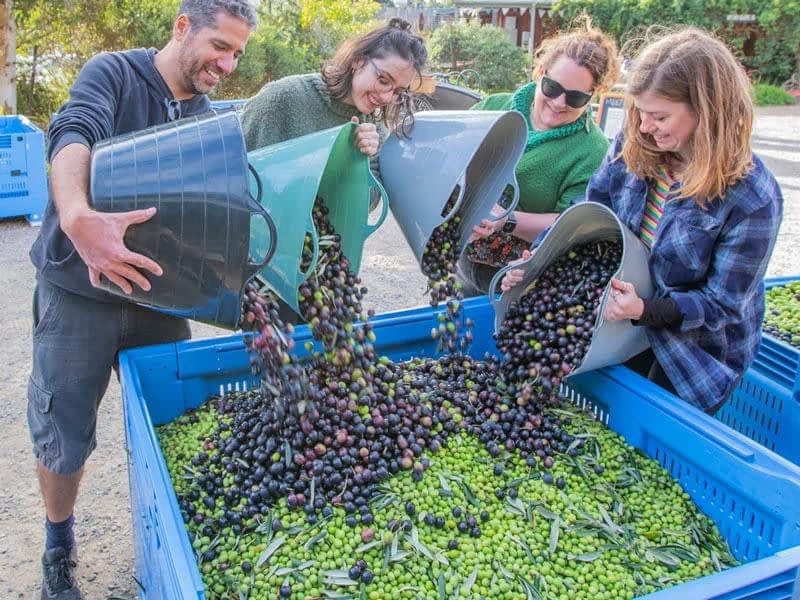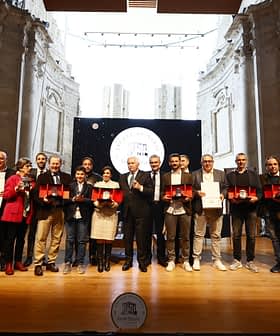Residents of Melbourne, Australia, are having their backyard olives pressed together to create a communal extra virgin olive oil at an annual festival.
The event features information stalls and advice on tending to olive trees and has seen almost ten tons of olives pressed since 2018 to create an extra virgin olive oil brand known as 3000acres.
“We’re a part of the bigger CERES family, and the 3000 refers to the postcode of Melbourne,” explained Merrin Layden, CERES’s community food systems manager, a social enterprise hub organizing the event with 3000acres.
See Also:Farmers in Australia Look Forward to An Abundant HarvestShe said the oil had won silver and bronze medals at the Royal Adelaide Show in two consecutive years.
Layden said 3000acres encourages people to work together across the city to harvest olives that may go to waste otherwise.
“The intent of the program is to enable people to access olive pressing by joining together with their community,” she said, “as most processors have minimum batch size requirements that individuals otherwise wouldn’t be able to meet.”
Once CERES collects and weighs participants’ olives on the day of the festival, they are sent to nearby Barfold Olives, a producer northwest of Melbourne, to be processed. The oil will then be delivered to participants later this year.
Each participant’s volume of oil will depend on the number of olives they harvested and other factors, such as olive variety.
Layden said there are many olive cultivars grown in Melbourne. “[There is] such a huge variety,” she told Olive Oil Times, “many planted by Greek and Italian migrants with cuttings brought from their homes when they arrived decades ago.”
“We have Kalamata, Manzanilla, Frantoio, Cerignola, Gordal, Arbequina and I’m sure so many more,” she added. “But the deliveries are always a mix of sizes, varieties, stages of ripening and more.”
The festival is held on two different dates. The first event took place on May 21 in the suburb of Brunswick East, and the second will be held on June 4 in the local Hobsons Bay area.
Backyard olive growers interested in having their olives processed at the upcoming Hobson Bay event must register before June 4 to arrange a time to drop them off.
Bookings are essential and free for residents of Hobsons Bay and $15 (AUD) for participants from other areas of metropolitan Melbourne.
“The average contribution per booking is around 20 to 30 kilograms,” Layden said. “But we receive as little as 200 grams handed over by excited children and as much as 100 kilograms harvested by family groups or neighbors.”
She added they will now be capping people’s contributions at 50 kilograms per family, and the olives should not be harvested before June 2.
“You can pick the olives by hand individually or in handfuls, shake the branches or use a rake to pull the olives down from the tree,” she said.









